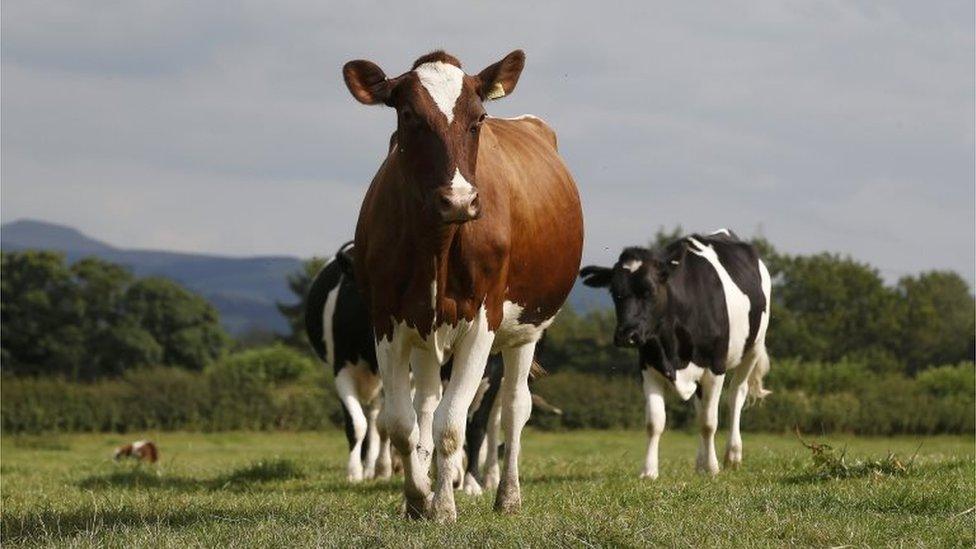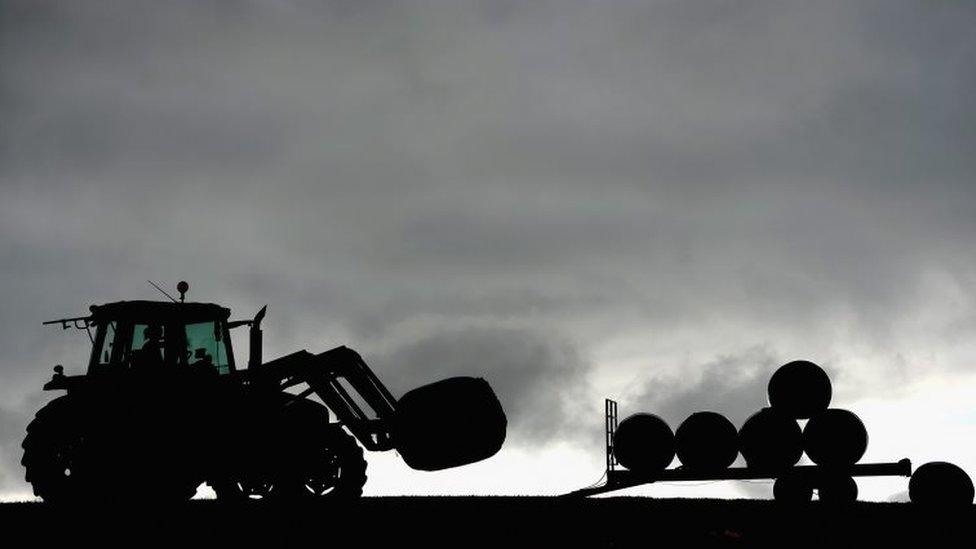EU referendum: Appeal over post-EU poll farm funding
- Published

Prime Minister David Cameron has been told to clear up confusion about what could happen to farm funding after the UK's referendum on the EU.
Pro-exit farming minister George Eustice said support for farmers would be maintained if the UK left the EU.
But his department said this was his personal view, not the government's.
A group representing thousands of farmers and landowners has written to Mr Cameron, demanding EU payments to farms continue.
The UK vote on whether to remain in or to leave the EU takes place on 23 June.
'Unknown'
In the letter - seen by the BBC - the Country Land and Business Association (CLA) says the current funding must stay in place until 2020.
CLA president Ross Murray wrote: "The lack of clarity around what is statement of fact and what is conjecture about government plans is causing confusion, which leads to uncertainty around investment decisions and around meeting long-term environmental commitments."
Asked about farming subsidies in the event of leaving the EU, Mr Eustice told BBC Radio 4's Today programme: "We would still support farming to the same level, possibly even more than now."
But a spokeswoman from the Department for Environment, Food and Rural Affairs (Defra) said: "This is the view of the farming minister, who supports the Leave campaign, and not that of the government."
Mr Cameron has said some support for farmers would continue after a leave vote but has not promised it would not be cut.
A Defra spokesman added: "The future level of farming support if we left the EU is unknown."
Mr Eustice's boss, Environment Secretary Liz Truss, shares the official government position that the UK should remain in the EU.
One government source said no minister could possibly guarantee Common Agricultural Policy payments would be matched outside the EU as they could not know which government would be in power or what decisions it would make.
Leave campaigners argue that as a net contributor to the EU budget, the UK could easily afford to continue making payments if it left.
The CLA says civil servants need to start work on what would happen after a leave vote.
The group is remaining neutral on whether the UK should leave the EU.
- Published30 December 2020

- Published6 April 2016
